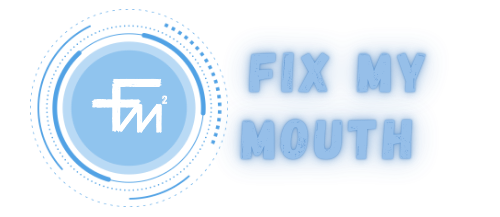
If you’re searching “tooth hurts after root canal,” you’re likely experiencing unexpected discomfort following what you hoped would be a solution to dental pain. Post-root canal sensitivity is surprisingly common – studies suggest up to 40% of patients report some soreness (Journal of Endodontics). While mild tenderness is often normal, persistent or severe pain signals potential issues. As board-certified dentist, I’ll explain why your tooth might hurt after a root canal, differentiate normal healing from warning signs, and guide your next steps.
Why Would a Root Canal Tooth Still Hurt?
Root canals remove infected pulp, but surrounding tissues remain active. Here’s why discomfort occurs:
🔹 Normal Healing Inflammation
Your bone and ligaments around the tooth undergo trauma during treatment. This triggers natural inflammation – similar to a sprained ankle – causing:
- Mild throbbing for 3-5 days
- Sensitivity to biting pressure
- Tenderness when touching the gum
Management: OTC pain relievers (ibuprofen), soft foods, and avoiding chewing on the treated side.
🔹 Temporary Crown Sensitivity
If a temporary crown is placed:
- Exposed dentin near the gumline may react to temperature
- Imperfect seals allow micro-leakage of bacteria
- Minor height discrepancies alter your bite
5 Reasons Your Tooth Hurts After Root Canal That Need Attention
🚩 1. High Bite (Hyperocclusion)
Why it happens: Your final restoration (crown/filling) sits slightly higher than adjacent teeth, causing excessive force when chewing.
Symptoms:
✔️ Sharp pain when biting down
✔️ Relief when pressure is released
✔️ Tooth feels “tall”
Solution: Simple bite adjustment by your dentist (5-minute procedure).
🚩 2. Persistent Infection
Missed canals, complex anatomy, or lingering bacteria can cause reinfection:
- Referral pain radiating to jaw/ear
- Swollen gums near the tooth
- Pus drainage or bad taste
🚩 3. Root Fracture
Hairline cracks in the root can develop during/after treatment:
- Pain: Sharp, localized stabbing when chewing
- Diagnosis: Requires CBCT 3D scan
- Solution: Extraction or root amputation
When to Call Your Dentist Immediately: 3 Red Flags
Contact your provider SAME DAY if you experience:
- 🔴 Swelling in cheeks/face or fever
- 🔴 Throbbing pain worsening after 72 hours
- 🔴 Pus discharge or foul taste
Delaying care for these symptoms risks abscess formation or bone loss. Immediate intervention is critical.
Post-Root Canal Pain Timeline: What’s Normal?
| Time Since Procedure | Expected Sensation | Warning Signs |
|---|---|---|
| 24-48 hours | Moderate soreness, jaw fatigue | Severe, unrelenting throbbing |
| 3-7 days | Dull ache, sensitive to pressure | Swelling or fever |
| 1-2 weeks | Mild tenderness occasionally | Pain when not chewing |
| 4+ weeks | No pain | Sudden sharp pain |
How I Diagnose Persistent Root Canal Pain
I use advanced diagnostics:
- Digital X-rays & CBCT Scans: Detect hidden fractures/infection
- Bite Analysis: Identify hyperocclusion with articulating paper
- Cold Testing: Rule out neighboring tooth issues
- Percussion Testing: Isolate inflammation source
Pro Tip: Bring a list of your symptoms and their triggers (e.g., “hurts only when drinking cold water”) to accelerate diagnosis.
FAQs: Tooth Pain After Root Canal
Q: Is severe pain 2 weeks after root canal normal?
A: No. Pain should significantly decrease by Day 7. Schedule an evaluation.
Q: Can a crown cause root canal pain?
A: Yes – if the bite is high or decay develops under ill-fitting crowns.
Q: Why does my root canal tooth hurt when I bite?
A: Most commonly a high filling/crown (90% fixable with bite adjustment).
Key Takeaways: Managing Post-Root Canal Discomfort
- ✅ Mild soreness for 3-5 days is normal – use OTC meds and soft foods
- ❌ Never ignore swelling, fever, or severe throbbing – seek immediate care
- 📅 Schedule a follow-up if pain persists beyond 1 week
- 🔍 Bite issues are the #1 fixable cause – request an adjustment



